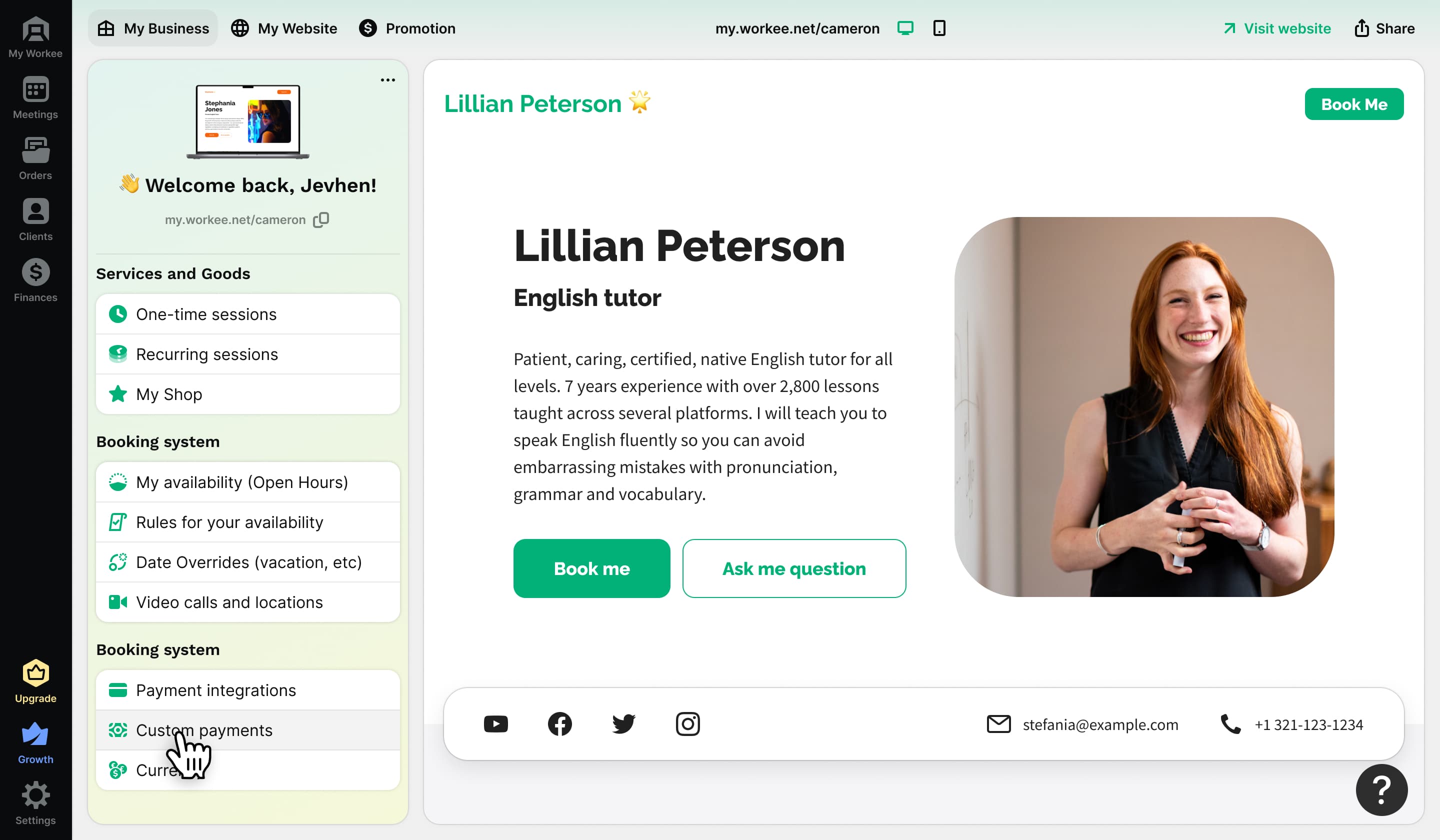Mastering Digital Platforms for Effective Teaching and Learning: Proven Strategies in the Online Education Era

Seeking a straightforward path to teaching online? Look no further. This comprehensive guide unpacks the essentials—engaging students, crafting dynamic lessons, and cultivating community in a digital classroom. Get ready to elevate your online education prowess and connect with learners in meaningful ways.
Key Takeaways
Online teaching comes with both perks like flexibility and personalization and challenges such as isolation and tech issues, but with sufficient support and resources, teachers can successfully navigate the digital education landscape.
Success in online teaching hinges on reliable tech, engaging tools like interactive quizzes and video lessons, efficient lesson planning, and strategies to assess and sustain student participation and progress.
Continuous professional development, understanding of legal and ethical issues, and fostering a supportive online community are critical for the growth and effectiveness of an online teacher.
Embracing the Online Teaching World

The teaching world has witnessed a seismic shift in recent years as digital classrooms have emerged as the new normal. While online teaching offers flexibility, personalization, and cost-saving benefits, it does present its set of challenges. Reduced face-to-face interaction can lead to a sense of isolation, limiting collaborative opportunities. Additionally, technical issues such as internet connectivity problems and device compatibility can disrupt the continuity and efficiency of learning.Yet, with the right digital tools and support systems in place, these challenges can be managed effectively. Imagine having:
a tech person present during your first online class, helping you navigate the new technological tools and platforms
a mentor or coach to provide guidance and support as you navigate the digital education landscape
access to online resources and tutorials to help you learn and master new skills
a community of fellow learners who can offer advice, share experiences, and provide encouragement
This support can ease the transition, reduce stress, and empower you to harness the power of digital education. With time, you’ll adapt and become proficient, overcoming the initial overwhelm.So gear up to embrace the new world of online teaching, and let’s explore the essential tools you’ll need for success.
Understanding Online Learning Platforms
Online learning platforms are digital environments designed to facilitate the teaching and learning process. These platforms provide educators with the tools to create and share course materials, track student progress, and engage with students in virtual classrooms. They support various teaching methods, including blended learning, flipped classrooms, and fully online courses. Key features often include discussion forums, video conferencing tools, and assessment management systems, all of which contribute to a comprehensive learning experience. By leveraging these platforms, educators can create dynamic and interactive learning environments that cater to the needs of their students.
Choosing the Right Online Learning Platform
Selecting the right online learning platform is crucial for effective teaching and learning. Educators should consider several factors, such as the platform’s ease of use, compatibility with existing systems, and ability to support diverse learning styles. Evaluating features like student progress tracking, student participation, and interactive learning experiences is essential. Additionally, the platform’s scalability, security, and customer support should be taken into account. By carefully assessing these aspects, educators can choose a platform that not only meets their needs but also enhances the overall learning experience for their students.
Essential Tools and Learning Management Systems for Online Teaching Success
To excel in your teaching online endeavors, it’s crucial to have a stable internet connection, essential hardware such as a webcam and earbuds, and a robust Learning Management System (LMS) to orchestrate your digital classroom. Online platforms are also vital, serving as resources for accessing educational materials and enabling interactive and personalized learning experiences for students. LMS platforms are indispensable for managing the administrative, documentation, tracking, reporting, and distribution aspects of online courses. Services like Google Classroom, Blackboard Learn, and Docebo are tailored to meet various online teacher career needs, providing distinctive features for course management, grading, and software integration.Software enhancements like iSpring Free and Powertalk can elevate your PowerPoint decks into immersive online courses and add text-to-speech functionality, thereby making your teaching jobs more accessible and inclusive. But the toolkit is just the beginning. Your success in the online teacher career also relies on your prowess to captivate students and meticulously plan your lessons. Let’s delve deeper into these facets.
Maximizing Virtual Classroom Engagement

To foster a vibrant teaching online environment, strategic student engagement is key. Interactive platforms and digital tools that can aid in this mission include:
Kahoot: delivers interactive quizzes and educational games that maintain student interest
Edpuzzle: empowers teachers to craft interactive video lessons and monitor student engagement
JeopardyLabs: allows educators to create custom Jeopardy-style games for review and assessment
Features like gamification, leaderboards, badges, and social learning, provided by LMS platforms such as Absorb and Docebo, can significantly enhance student motivation and engagement in your online teacher career.Diversifying content through platforms like Pic-Lits and promoting community via small group activities can cater to various student engagement preferences. Designing collaborative challenges and encouraging learners to share their educational journeys fosters interpersonal skills and self-awareness. The ultimate aim is to cultivate a learning atmosphere where students are driven to engage.
Efficient Lesson Planning for Digital Learning
A successful teaching online experience starts with clear learning targets and the strategic selection of instructional methods and resources. Online platforms serve as valuable resources for organizing and delivering content. Making the course content accessible early on in the LMS, and utilizing tools like Planboard and PlanbookEdu for lesson organization, can familiarize students with the course layout and boost their involvement. Clearly marked assignment deadlines in the syllabus and on educational platforms ensure that students stay on track with the curriculum.Formative assessments such as weekly reflections, video response quizzes, and the ‘minute paper’ technique enable educators to gauge and respond to students’ learning needs. Using online polls to gather insights on students’ grasp of complex topics can guide necessary instructional adjustments. Soliciting student feedback is instrumental in shaping more effective future teaching online experiences.
Building Your Personal Teaching Business with Workee

Now, let's talk about a game-changer in the online teaching world - Workee. This platform allows educators to:
Easily create a professional, no-code website for their online teaching business
Set up work schedules and time slots for bookings
Handle secure payments with built-in invoicing and additional financial tools and features
Record calls on Workee Calls
But that's not all! Workee also assists educators in promoting their tutoring business. Through Workee Ads, educators can get assistance with campaign setup, including banner preparation, audience targeting, and budgeting for social media advertising. And the best part? Workee offers a variety of plans suitable for educators, including a Starter plan with AI-generated content and a Pro plan that includes advanced features like custom website templates and SEO support.
Developing a Strong Online Teacher Presence

Having the right tools and strategies is important, but so is establishing a strong teacher presence in online learning. A strong teacher presence can build a sense of belonging, engage students, and improve retention. Before your course begins, reach out via email to introduce yourself and share course details to foster a welcoming environment. Setting and sharing office hours early on provides students with clear opportunities for engagement and direct communication with you.As an online teacher, you'll need to wear multiple hats - designer, instructor, and facilitator in the digital classroom. You'll have to:
Show respect by maintaining academic language in discussions and using communication tools like the ‘raise hand' feature.
Practice effective communication, consistency in interactions, and courtesy towards students to create a strong teacher presence.
Create a space where students feel valued, heard, and motivated to learn.
Adapting Traditional Teaching Methods for Online Instruction
As we navigate this new teaching landscape, it’s important to understand that what worked in a traditional classroom might need to be adapted for an online platform using digital tools. You should design activities that cater to multiple learning styles to create an optimal online learning environment. In the online realm, your role evolves from controlling the classroom to guiding and facilitating students towards solutions. Interactive methodologies have shown to improve communication patterns among students in the online learning paradigm.Collaborative activities like team projects and peer reviews create opportunities for students to work together and support reciprocal learning. Online forums and panels play a crucial role in facilitating group communication and information exchange, anytime without geographical constraints. Case studies, enhanced by the wealth of online resources, stimulate practical application of theoretical principles at a synthesis school.
Online Learning Delivery Methods
Online learning platforms offer various methods for content delivery, each with its own set of advantages and disadvantages. Video-based learning involves pre-recorded videos that students can access at their own pace, providing flexibility and convenience. One-on-one learning, often facilitated through video conferencing tools, allows for real-time interaction between the educator and student, offering personalized attention. Group learning, conducted in virtual classrooms, enables real-time interaction between the educator and multiple students, fostering a collaborative learning environment. Educators should choose the method that best aligns with their teaching style and the needs of their students.
Assessing Student Progress in an Online Environment
Assessing student progress in an online environment requires unique strategies. Formative assessments like weekly content reflections, video response quizzes, and the ‘minute paper' technique help monitor student progress and provide opportunities for improvement before final evaluations. Low-stakes formative assessments help check student understanding of topics without adding pressure, thus encouraging active participation. Rewarding student completion in formative assessments fosters a positive learning experience by reducing stress and emphasizing the learning process.Interactive drag-and-drop activities in assessments can test a learner's ability to apply knowledge to practical scenarios, reinforcing and evaluating their comprehension. Peer evaluation activities not only allow students to give each other structured feedback but also encourage self-reflection on their own work. Using forum posts as a means for assessment supports collaborative learning as students can engage in discussions related to lesson materials and share their insights.
Cultivating a Supportive Online Learning Community

Building a supportive online learning community is pivotal in fostering a sense of belonging and motivating students to stay engaged. Personal connections between teachers and students can be strengthened by using methods such as short daily videos and individual weekly check-ins. Regular check-ins focusing on emotional well-being allow students to express themselves and enable teachers to understand the emotional climate of the online classroom.Group projects, peer reviews, and collaborative digital resources create opportunities for students to work together and support reciprocal learning. Discussion forums can build a collaborative environment, allowing students to establish relationships, share ideas, and assist each other. A vibrant online learning community augmented by active participation makes learning experiences more engaging and enjoyable.
Benefits of Online Learning
Online learning offers numerous benefits, making education more accessible and flexible. Students can access course materials and participate in online discussions at their own pace, allowing them to balance their studies with work and family responsibilities. This flexibility is particularly beneficial for adult learners and those with busy schedules. Additionally, online learning provides opportunities for students to engage with educators and peers from diverse backgrounds, promoting cultural exchange and understanding. The cost savings associated with reduced transportation and accommodation expenses further enhance the appeal of online learning, making it a viable option for many.
Professional Development Opportunities for Online Teachers
Just like any other profession, continuous professional development is crucial for those pursuing a teaching career, especially for online teachers who need to stay updated with the latest teaching strategies and educational technologies. Free, live interactive workshops, on-demand webinars, and professional development sessions are available through platforms like:
ShareMyLesson
TeachersFirst
Waterford.org
SciLearn
EdWeek
edWeb
Learning for Justice
These platforms cover a wide range of educational topics, including bachelor's degree programs, and provide opportunities for those with teaching experience pursuing an online teaching career or teaching abroad, such as to teach English online, to enhance their teaching skills and knowledge through online classes and to teach online in various subjects. Additionally, these platforms offer numerous teaching jobs for qualified individuals.Events and activities listed on platforms like Eventbrite, including conferences and trainings, serve as excellent opportunities for online teachers to network and engage with the teaching community. Comprehensive online courses and teaching certificate programs that may count for continuing education or graduate-level credits are provided by:
PBS TeacherLine
Coursera
ASCD
Canvas
Sanford Inspire
These platforms offer a wide range of resources for online teachers to enhance their skills and knowledge.
Navigating Legal and Ethical Considerations in Online Teaching
As you navigate the world of online teaching, it's important to be aware of legal and ethical considerations. There are three main legal issues that arise frequently in online education: ownership issues, copyright issues, and issues related to harassment and defamation. Many educators misunderstand the concept of ‘fair use', mistakenly believing that all materials used in an online classroom are covered by it, which can lead to copyright infringement and legal troubles.To evaluate if something falls under fair use, the ‘Fair Use Four-Part Test' is used to consider factors like:
whether the material is reproduced instead of purchasing the copyrighted work
the purpose and character of the use
the nature of the copyrighted work
the effect of the use upon the potential market for or value of the copyrighted work
Copying book parts for course material to avoid requiring students to purchase them is often not covered by fair use as it harms the market and income of authors. Instructors may be personally liable for copyright violations as many educational institutions do not cover legal defenses or damages incurred.Online learning can increase the risk of plagiarism and academic dishonesty, which need active measures to enforce academic integrity.
Evaluating Online Learning Platforms
Evaluating online learning platforms is essential to ensure they meet the needs of both educators and students. Key features to assess include the platform’s ability to track student progress, facilitate student participation, and provide interactive learning experiences. The user interface, technical support, and scalability are also important considerations. Additionally, educators should evaluate the platform’s compatibility with existing systems, such as learning management systems and digital education tools. By thoroughly evaluating these aspects, educators can select a platform that supports effective teaching and learning, ultimately enhancing the educational experience for their students.
Summary
We've journeyed through the realm of online teaching, embracing its challenges and opportunities. We've explored the essential tools for success, strategies for engaging students, and tips for effective lesson planning. We've seen how platforms like Workee can support the building of your personal teaching business and how important it is to establish a strong online teacher presence. We've discussed ways to adapt traditional teaching methods for online instruction, assess student progress, and cultivate a supportive online learning community. We've also highlighted the importance of continuous professional development and the need to navigate legal and ethical considerations. As we wrap up this journey, remember that the key to successful online teaching lies in continuous learning, adaptability, and maintaining a student-centric approach.
Frequently Asked Questions
Is there a demand for online teachers?
Yes, there is a high demand for online teachers due to the increasing popularity of remote learning, offering plenty of opportunities for career growth.
Which online teaching platform pays the most?
Check out Preply.com, Magic Ears, Qkids, VIPKid, Lingoda, English from A to Z, Live Lingua, and iTalki for some of the highest-paying online teaching opportunities available.
What qualifications do you need to teach online?
To teach online, you typically need a bachelor's or master's degree in education, relevant certification, and teaching experience. Private schools may have different requirements.
What are the challenges of online teaching?
The challenges of online teaching include reduced face-to-face interaction, technical issues such as internet connectivity and device compatibility, and the need to adapt to new technologies. It can be quite a learning curve, but with the right resources and support, it's definitely doable.
What are some strategies to engage students in an online classroom?
Try using platforms like Kahoot, mixing up the content, encouraging small group work, and recognizing individual accomplishments to engage students in an online classroom. These strategies can make learning more interactive and enjoyable for everyone.


